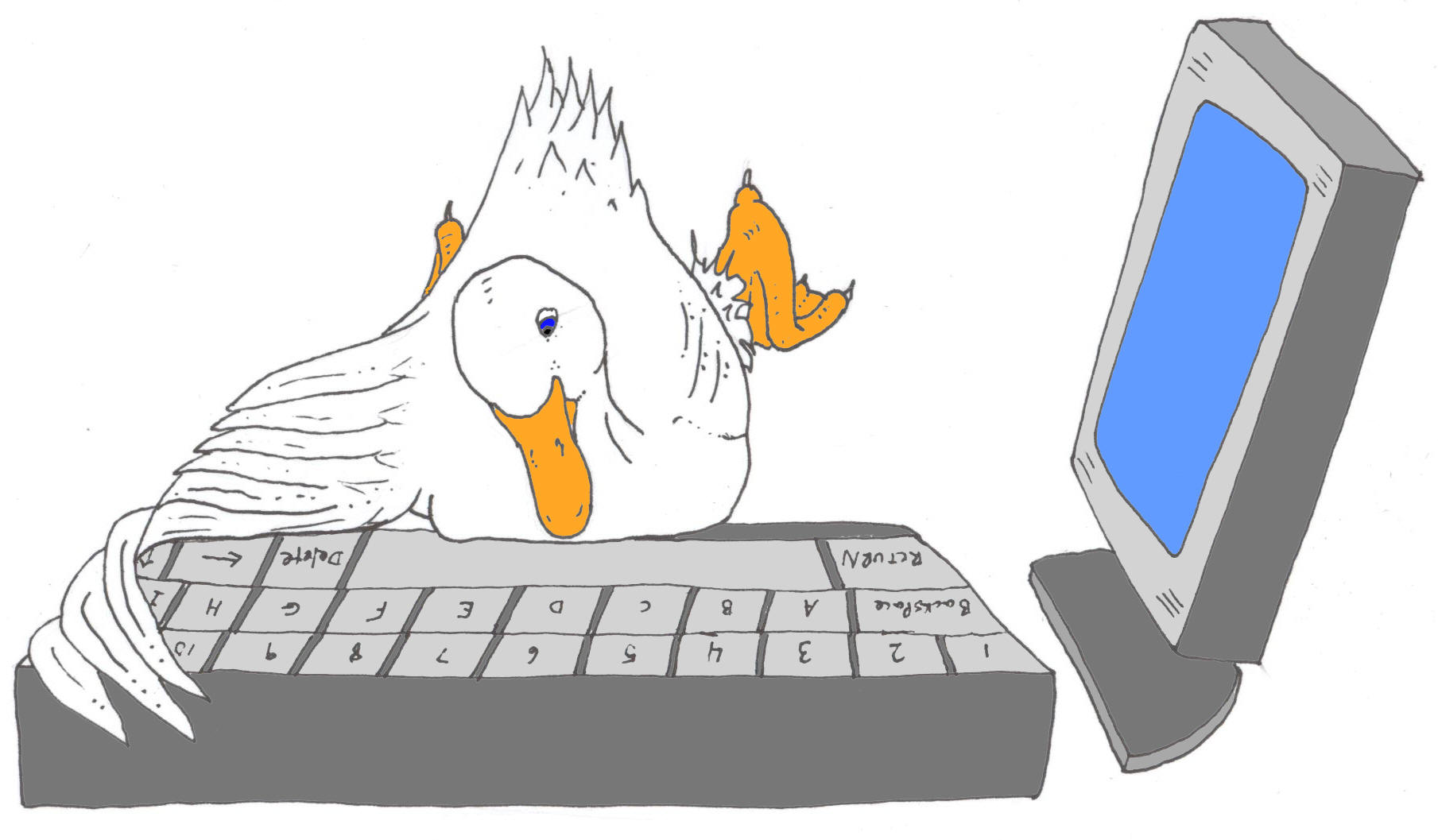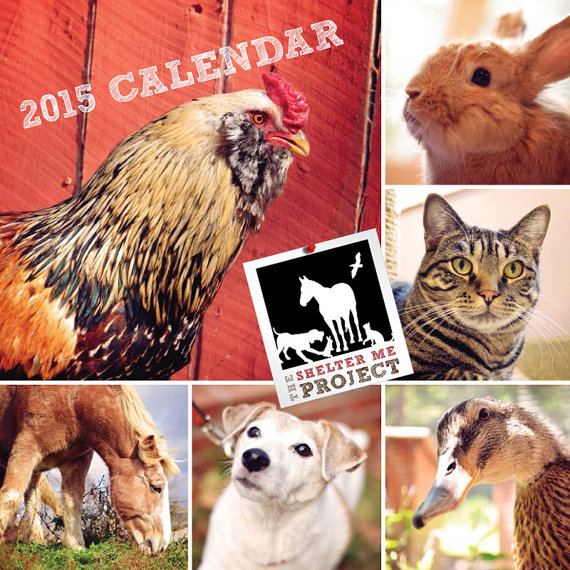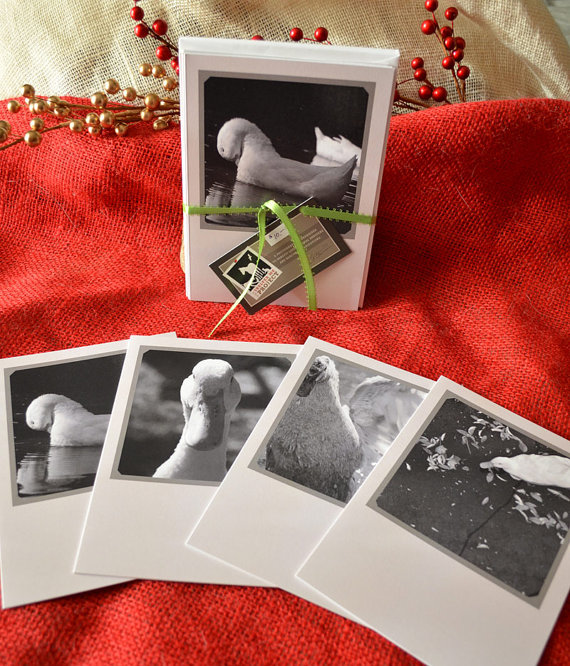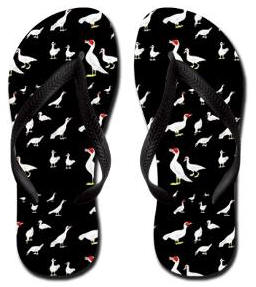Citizens Bank
We would like to take this opportunity to thank our Majestic Waterfowl Sanctuary banking team!
While we've been with Citizens Bank since our establishment in 2004 and have always appreciated their support, we've experienced a noticeable improvement in the quality of their customer service since Branch Manager Keith Mendes joined our local team in Colchester Connecticut.
We enjoy chatting with our smiling and happy tellers Heidi and Bonnie each time we visit to do our banking. It's nice to be recognized and appreciated when we walk through the door.
Citizens helps our sanctuary with our checking, savings and credit needs and someone always picks up the phone when we call. Thank you, Keith and Citizens Colchester for helping us in our endeavor to rescue waterfowl.
Citizens
Bank
111 Norwich Ave
Colchester CT 06415
PH:
860-537-2310

Olde Mistick Village Orders Their Geese Removed
Recently, Olde Mistick Village in Mystic Connecticut ordered Majestic to come and remove the two domestic geese Brooklyn and Lulu from the fenced in pond within their shopping village. As some of you may recall, we helped facilitate the adoption of these beautiful geese in early 2013 upon the village's request.
Why the sudden change of heart? We can only say that management called us in an agitated state and said that they were no longer going to allow them to be fed. For the sake of their well-being, we arranged for their immediate removal and brought them back to our sanctuary where they enjoyed a nice, hearty meal.
Although this friendly couple of Toulouse geese are safe and sound and have been delivered back to MSPCA Nevins Farm (and are available for adoption), there has been some concern about the remaining domestic ducks. While village management claims they feed their domestic non-flying flock twice a day between 7:00-8:00 am and again at noon, we have yet to find anyone in the village who has witnessed the ducks being fed during normal business hours (10:00 am - 6:00 pm). A recent post on their Facebook page from one village visitor suggests that the ducks were huddled outside and exposed to freezing cold temperatures with no available shelter and without any available water. Keep in mind, ducks are vulnerable to frostbite on their bills and feet at temps below 15 degrees Fahrenheit.
If food isn't provided 24/7, then domestic ducks should be offered 1 cup of food at least twice a day. Additionally, they need to gain between 1-2 pounds for winter as added insulation from the cold. This weight gain is VERY visible in healthy ducks. You should notice the difference when you visit seasonally. Ducks who've been offered adequate food will gain this weight and then lose it again in the spring all on their own, without any adjustments to their diet. If you visit the village in winter, ask yourself if the ducks there look nice and plump for winter. If not, why not?
Ducks who are fed frequently and adequately do not trample one another while rushing for food, nor do they gorge themselves at meal times. If you visit the village and witness this type of behavior, why do you suppose that is?
We have been called, emailed and we bump into concerned citizens nearly every time they see our orange and white Majestic car in the area (which is pretty frequently since our vet office is right up the street in Noank). When people express their concerns that the village ducks aren't being cared for properly, we reply:
"Majestic Waterfowl Sanctuary has no authority in this situation, but local Animal Control Officers do. If you have a concern about the care of the village ducks, please contact someone with the authority to help--especially if you frequent the village or are a Mystic resident. And then, follow up on your inquiry to confirm that it's been handled to your satisfaction."
Stonington Animal Control (handling Mystic, CT):
Phone #: 860-599-4411
Full Time ACO: Keri Bush
Part Time ACO: Tanya Wescovich
The Connecticut Humane Society
CT Animal Cruelty Statute: CGS 53-247
Connecticut law defines ďanimalsĒ as all brute creatures and birds. CGS 53-247(a), as amended by PA 12-86, prohibits people from overdriving, overloading, overworking, torturing, depriving of substance, mutilating, cruelly beating or killing, or unjustifiably injuring any animal. If impounding or confining an animal, it prohibits:
- Failing to provide it proper care
- Neglecting to cage or restrain it from injuring itself or another animal
- Failing to supply it with wholesome air, food and water
The statute also bans unjustifiably administering or exposing a domestic animal to any poisonous or noxious drug or substance intending that the animal will take it. Individuals in custody of an animal may not act cruelly to it; fail to provide it with proper food, drink or shelter, abandon it; or carry or cause it to be carried in a cruel manner. Fighting with or baiting, harassing, or worrying an animal to make it perform for amusement, diversion, or exhibition is also prohibited. A first offense is punishable by a fine of up to $1,000, imprisonment for up to one year, or both. Each subsequent offence is punishable by a fine of up to $5,000, imprisonment for up to five years, or both.
Under CGS 53-247(b), maliciously and intentionally maiming, mutilating, torturing, wounding, or killing an animal is punishable by a fine of up to $5,000, up to five years imprisonment, or both.
Recognizing the Signs of Cruelty
Cruelty can take many different forms ranging from unintentional neglect due to lack of education and/or finances all the way up to and including premeditated cruelty like dog fighting. It is important to look at both pets and their environment to determine if abuse may be taking place. Aggressive, timid and fearful behavior can occur for many reasons other than abuse. A pet that is being actively treated for a medical condition may look unhealthy at the beginning of their recovery process. The two lists below will help you determine if the pet(s) youíve observed may be victims of cruelty or neglect.
Physical signs of abuse:
- Collar that is embedded in the petís neck or so tight it is causing a wound
- Open wounds, signs of multiple healed wounds, or a chronic injury or illness that isnít being treated
- Untreated skin conditions that have caused loss of hair, scaly skin, bumps or rashes
- Flea, tick or other external parasite infestation of the fur
- Patches of bumpy, scaly skin rashes
- Signs of inadequate grooming; matted fur, overgrown nails, dirty coat
- Limping or the inability to walk or stand normally
- Extreme physical weakness
- Heavy discharge from eyes or nose
- Observed beating or other signs of physical abuse
- Visible signs of confusion or extreme drowsiness
- Pets are visibly emaciated
- Pets that cower and/or act aggressively to their owners and/or ALL people
Environmental signs of abuse:
- Pets that are kept outside (chained) for long periods of time without adequate food, water or shelter
- Pets that are regularly left alone for long periods of time without food or water
- Pets kept outside in inclement weather without access to adequate shelter
- Pets living conditions are constantly filthy and littered with feces, garbage, broken glass and other harmful objects
- Pets are kept in overcrowded cages/kennels
- Pets kept in cages/kennels that arenít big enough to allow them to stand, turn around and make normal movements
Making A Report
If youíve observed a pet(s) that shows both physical and environmental signs of abuse, or multiple signs in one of the lists above, report your findings to your local Animal Control Officer. This will ensure that pets in jeopardy receive prompt and often lifesaving care.
Witness information:
Provide your name, address and phone number when making the report. This will help ensure that ACO has the initial information they need to proceed. In Connecticut, an ACO will not respond to complaints based on hearsay. The eyewitness of the abuse must make the report.
Perpetrator information:
Provide as accurate an identity of the perpetrator as possible. Include: name, address, phone number, physical description and if possible vehicle description/tag number, place of employment, known associates/co-perpetrators of the acts of cruelty.
What happened and how:
Provide as many details as you possibly can of the incident and/or conditions you have observed. Include descriptions of the animals and their conditions, any available written reports/documents verifying the conditions, any pertinent conversations you may have had with the perpetrator(s), and names of others who may have witnessed the incident/conditions along with you. If possible, include photos and/or a video. Please, do not put yourself in danger or enter another personís property without permission. Exercise great caution around unfamiliar animals who may be frightened or in pain.
When and where:
Provide date, time and specific location of where the incident/conditions were observed. If you can take a photo of what you're witnessing, remember to do so.
Remember, your local ACO cannot do their job without community involvement. If you witness animal cruelty and neglect, make a report. Your action could make all the difference in the life of that animal.

The above information has been provideds courtesy of the Connecticut Humane Society. Please visit their website for more information.






